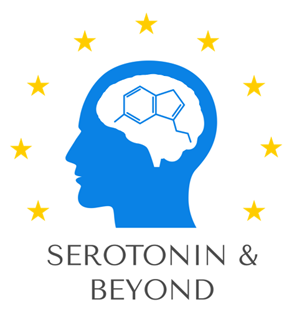Genetic contributions to brain serotonin transporter levels in healthy adults
July 19, 2023
Silvia Elisabetta Portis Bruzzone, Arafat Nasser, Sagar Sanjay Aripaka, Marie Spies,
Brice Ozenne, Peter Steen Jensen, Gitte Moos Knudsen, Vibe Gedsoe Frokjaer,
Patrick MacDonald Fisher
The serotonin transporter (5-HTT) critically shapes serotonin neurotransmission by regulating
extracellular brain serotonin levels; it remains unclear to what extent 5-HTT levels in the human brain
are genetically determined. Here we applied [11C]DASB positron emission tomography to image
brain 5-HTT levels and evaluated associations with five common serotonin-related genetic variants
that might indirectly regulate 5-HTT levels (BDNF rs6265, SLC6A4 5-HTTLPR, HTR1A rs6295, HTR2A
rs7333412, and MAOA rs1137070) in 140 healthy volunteers. In addition, we explored whether
these variants could predict in vivo 5-HTT levels using a five-fold cross-validation random forest
framework. MAOA rs1137070 T-carriers showed significantly higher brain 5-HTT levels compared to
C-homozygotes (2–11% across caudate, putamen, midbrain, thalamus, hippocampus, amygdala and
neocortex). We did not observe significant associations for the HTR1A rs6295 and HTR2A rs7333412
genotypes. Our previously observed lower subcortical 5-HTT availability for rs6265 met-carriers
remained in the presence of these additional variants. Despite this significant association, our
prediction models showed that genotype moderately improved prediction of 5-HTT in caudate, but
effects were not statistically significant after adjustment for multiple comparisons. Our observations
provide additional evidence that serotonin-related genetic variants modulate adult human brain
serotonin neurotransmission.
extracellular brain serotonin levels; it remains unclear to what extent 5-HTT levels in the human brain
are genetically determined. Here we applied [11C]DASB positron emission tomography to image
brain 5-HTT levels and evaluated associations with five common serotonin-related genetic variants
that might indirectly regulate 5-HTT levels (BDNF rs6265, SLC6A4 5-HTTLPR, HTR1A rs6295, HTR2A
rs7333412, and MAOA rs1137070) in 140 healthy volunteers. In addition, we explored whether
these variants could predict in vivo 5-HTT levels using a five-fold cross-validation random forest
framework. MAOA rs1137070 T-carriers showed significantly higher brain 5-HTT levels compared to
C-homozygotes (2–11% across caudate, putamen, midbrain, thalamus, hippocampus, amygdala and
neocortex). We did not observe significant associations for the HTR1A rs6295 and HTR2A rs7333412
genotypes. Our previously observed lower subcortical 5-HTT availability for rs6265 met-carriers
remained in the presence of these additional variants. Despite this significant association, our
prediction models showed that genotype moderately improved prediction of 5-HTT in caudate, but
effects were not statistically significant after adjustment for multiple comparisons. Our observations
provide additional evidence that serotonin-related genetic variants modulate adult human brain
serotonin neurotransmission.
Journal: Scientific Reports
